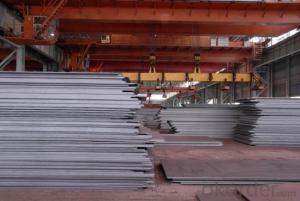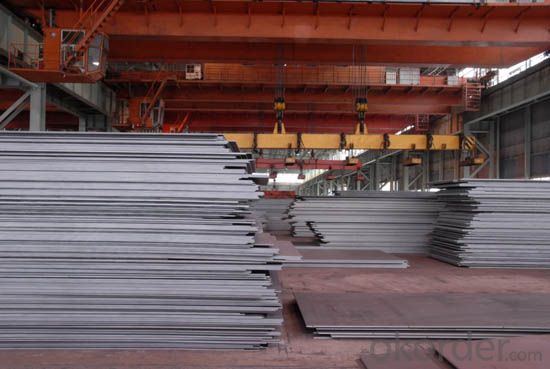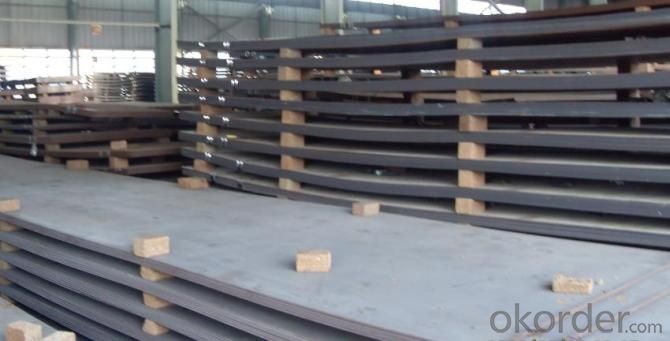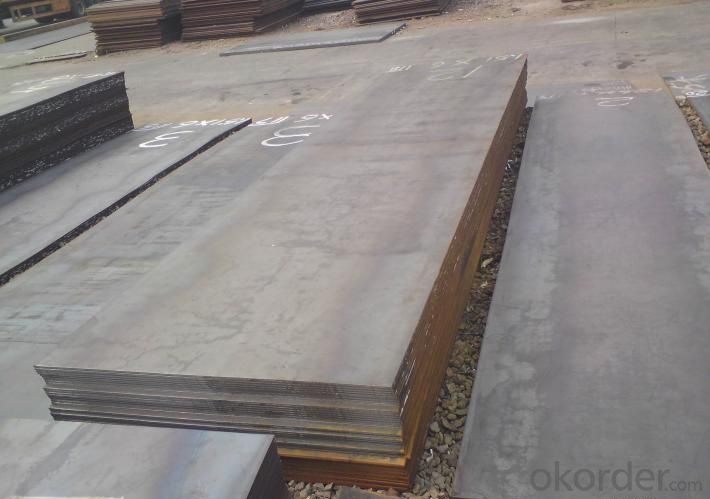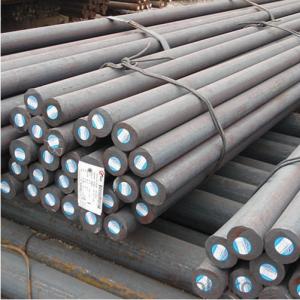Grade Q450NQR1 Corten Steel Plate 2.0*1000*3000
- Loading Port:
- Shanghai
- Payment Terms:
- TT or LC
- Min Order Qty:
- 100 m.t
- Supply Capability:
- 20000 m.t/month
OKorder Service Pledge
OKorder Financial Service
You Might Also Like
Grade Q450NQR1 Corten Steel Plate 2.0*1000*3000mm
Description:
-Grade: 09CuPCrNi-A
-Specification: 2.0*1000*3000mm
Chemical Composition(%) of Grade Q450NQR1 Corten Steel Plate 2.0*1000*3000mm:
| C | Si | Mn | P | S | Cu | Ti/V | Cr | Ni | RE |
| ≤0.12 | 0.25~0.75 | 0.20~0.50 | 0.060~0.12 | ≤0.020 | 0.25~0.50 | / | 0.30~1.25 | 0.12~0.65 | / |
Mechanical Properties of Grade Q450NQR1 Corten Steel Plate 2.0*1000*3000mm:
| Thickness(mm) | Y.S(MPa) | T.S(MPa) | EL. A5% | Bend 180o | Impact Test | |
| oC | AKV J | |||||
| 2.0~≤6.0 | ≥345 | ≥480 | ≥24 | d=a | Normal/-40 | ≥47/≥21 |
| >6.0~12.0 | d=2a | |||||
Application of Grade Q450NQR1 Corten Steel Plate 2.0*1000*3000mm:
Used in different weather. It has good anti rust protection and welding ability and is used in shipping container,support frame of outside building etc. Remarkably enhances the anti-corrosive performance of the structural element, lengthens the structural element service life, uses in manufacturing each kind of structural element which was used under the atmospheric envirenment and the caustic gas, the liquid envirenment.
Payment:
-Invoicing on theoretical weight or actual weight as customer’s request.
-FOB, CFR or CIF.
-Regular terms of payment:
1, 30% payment in advance, the remaining balance (70% payment) against the copy of B/L.
2, 30% payment in advance, the remaining balance (70% L/C) against the copy of B/L.
3, Negotiable.
-The payment terms will be written in contraction detailedly.
FAQ:
Q1: Why buy Materials & Equipment from OKorder.com?
A1: All products offered byOKorder.com are carefully selected from China's most reliable manufacturing enterprises. Through its ISO certifications, OKorder.com adheres to the highest standards and a commitment to supply chain safety and customer satisfaction.
Q2: How do we guarantee the quality of our products?
A2: We have established an advanced quality management system which conducts strict quality tests at every step, from raw materials to the final product. At the same time, we provide extensive follow-up service assurances as required.
Q3: How soon can we receive the product after purchase?
A3: Within three days of placing an order, we will arrange production. The shipping date is dependent upon the quatity, how many sizes you want and the plan of production, but is typically 1 month to 2 month days from the beginning of production.
Images of Grade Q450NQR1 Corten Steel Plate 2.0*1000*3000mm:
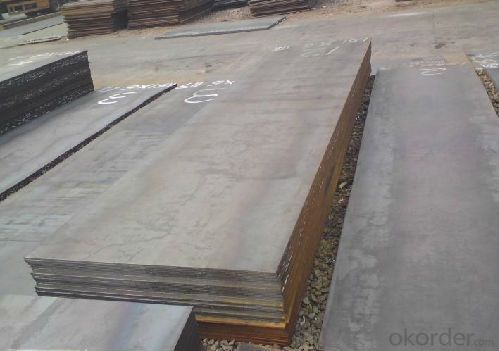
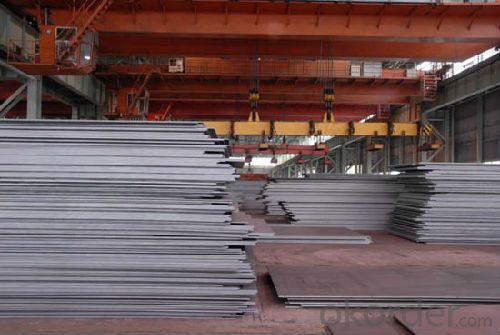
*If you would like to get our price, please inform us the size, standard/material and quantity. Thank you very much for your attention.
- Q: What are the properties of high-temperature tool steel?
- High-temperature tool steel is known for its exceptional heat resistance, hardness, and wear resistance. It has the ability to retain its strength even at elevated temperatures, making it ideal for applications in high-temperature environments. Additionally, it exhibits excellent toughness, allowing it to withstand heavy loads and resist deformation. High-temperature tool steel also has good dimensional stability and can maintain its shape even under extreme conditions.
- Q: Are there any international standards for special steel?
- Yes, there are international standards for special steel. These standards are developed and maintained by various organizations such as the International Organization for Standardization (ISO) and the American Society for Testing and Materials (ASTM). These standards ensure that the special steel products meet specific criteria for their composition, properties, and performance, enabling global consistency and compatibility in the industry.
- Q: What are the main characteristics of electrical steel?
- Electrical steel, also known as silicon steel or transformer steel, possesses several main characteristics that make it suitable for use in electrical appliances and power equipment. Firstly, electrical steel has a high magnetic permeability, which means it can easily conduct magnetic flux. This property allows it to efficiently transfer electrical energy and reduce energy losses in transformers, motors, and generators. Secondly, electrical steel exhibits low core loss, also known as hysteresis loss and eddy current loss. Hysteresis loss refers to the energy dissipated due to the reversal of magnetic domains within the material, while eddy current loss is caused by circulating currents induced by alternating magnetic fields. The low core loss property of electrical steel enables high energy efficiency and minimizes heat generation in electrical devices. Another important characteristic of electrical steel is its high electrical resistivity. This property reduces the magnitude of eddy currents, further reducing energy losses in electrical equipment. Additionally, electrical steel has a high saturation induction, which refers to its ability to reach maximum magnetic flux density. This characteristic allows transformers and motors to operate at higher magnetic flux densities, resulting in more compact and efficient designs. Furthermore, electrical steel possesses a high mechanical strength, which is crucial for withstanding the stresses and vibrations encountered in electrical devices. It also exhibits good thermal conductivity, enabling efficient heat dissipation and enhancing the overall performance and longevity of electrical equipment. In summary, the main characteristics of electrical steel include high magnetic permeability, low core loss, high electrical resistivity, high saturation induction, high mechanical strength, and good thermal conductivity. These properties make it an ideal material for various electrical applications, providing efficiency, reliability, and performance in power generation, transmission, and utilization.
- Q: What are the different corrosion protection methods used for special steel?
- There are several corrosion protection methods used for special steel to ensure its durability and longevity. These methods include: 1. Coatings: Applying various types of coatings, such as paint, epoxy, or zinc, can provide a protective layer on the steel surface. These coatings act as a barrier, preventing moisture and corrosive elements from coming into direct contact with the steel. 2. Galvanization: Galvanizing is a process that involves coating the steel with a layer of zinc. This creates a sacrificial barrier, as the zinc corrodes instead of the steel. Galvanized steel is commonly used in outdoor applications, such as fences, poles, and roofing. 3. Stainless steel: Special steel can also be manufactured using stainless steel, which contains a high percentage of chromium. Chromium forms a passive layer on the surface of the steel, providing excellent corrosion resistance. Stainless steel is widely used in industries such as construction, food processing, and medical equipment. 4. Cathodic protection: This method involves creating an electrical current or using sacrificial anodes to protect the steel. By introducing a more reactive metal (sacrificial anode) or applying an electrical current, corrosion is minimized as the reactive metal corrodes instead of the steel. 5. Alloying: Modifying the composition of the steel by adding elements like nickel, molybdenum, or copper can enhance its resistance to corrosion. These alloying elements form a protective layer on the surface, making the steel more resistant to rust and other forms of corrosion. 6. Passivation: Passivation is a chemical process that removes free iron from the surface of the steel and forms a protective oxide layer. This layer acts as a barrier against corrosion, enhancing the steel's resistance to rust and other forms of corrosion. 7. Proper maintenance: Regular inspection, cleaning, and maintenance of special steel are essential in preventing corrosion. Removing dirt, debris, and other contaminants from the steel's surface can help maintain its protective coatings and prevent corrosion from occurring. It is important to select the appropriate corrosion protection method based on the specific application and environmental conditions to ensure the long-term performance and durability of special steel.
- Q: Can special steel be used in the production of medical implants?
- Medical implants can indeed utilize special steel materials. Examples of these special steels include stainless steel, titanium alloy, and cobalt-chromium alloy. These steels possess unique properties that make them suitable for medical purposes. Notably, they are biocompatible, meaning they do not cause any adverse reactions or toxicity within the human body. Additionally, they exhibit high strength, corrosion resistance, and the ability to withstand the harsh conditions found inside the human body. Consequently, special steels can be employed in the production of various medical implants, such as orthopedic implants like hip and knee replacements, dental implants, cardiac stents, and surgical instruments. By incorporating special steel into medical implants, durability, longevity, and biocompatibility are ensured, thus providing patients with a dependable choice to enhance their quality of life.
- Q: What are the different tooling grades of special steel?
- Special steel, which possesses specific characteristics and properties, is a type of steel designed and manufactured for various industrial applications. Within this category, there are different tooling grades that have their own unique composition and properties. These grades are specifically engineered to meet the demands of different tooling applications, ensuring optimal performance and durability. There are several common tooling grades of special steel: 1. High-Speed Steel (HSS): HSS is a type of tool steel that has excellent hardness, wear resistance, and heat resistance. It is ideal for high-speed cutting tools like drills, milling cutters, and taps. Even at elevated temperatures, HSS retains its hardness, allowing it to maintain cutting performance without losing its edge. 2. Hot Work Tool Steel: This type of steel is designed to withstand high temperatures and thermal cycling in applications such as hot forging, die casting, and extrusion. It possesses good toughness, high heat resistance, and excellent wear resistance, which enable it to retain its strength and shape even under extreme thermal conditions. 3. Cold Work Tool Steel: Cold work tool steel is primarily used for cutting and forming applications at lower temperatures. It exhibits high hardness, toughness, and wear resistance, making it suitable for applications like blanking, shearing, and cold forming. Cold work tool steel maintains its hardness even under compressive forces, ensuring long-lasting performance. 4. Plastic Mold Steel: Specifically designed for the production of plastic injection molds and related tooling, this type of steel possesses excellent machinability, high polishability, and good wear resistance. It can withstand the demanding conditions encountered during plastic molding processes, ensuring precise and high-quality molding performance. 5. Powder Metallurgy (PM) Steel: PM steel is a tooling grade manufactured using a powder metallurgy process. This method allows for the production of complex shapes, uniform microstructure, and improved properties. PM steels are commonly used in high-performance cutting tools, wear-resistant parts, and high-strength applications. These examples represent just a fraction of the different tooling grades available in special steel. Each grade is carefully engineered to meet the specific requirements of various tooling applications, ensuring optimal performance, durability, and efficiency in different industrial sectors.
- Q: How does special steel perform in high-stress corrosion cracking environments?
- Special steel is specifically designed to perform well in high-stress corrosion cracking environments. This type of steel is highly resistant to corrosion and can withstand the combination of stress and corrosive elements present in these environments. Its unique composition and manufacturing process make it more durable and less prone to cracking, ensuring its reliable performance in such challenging conditions.
- Q: How does special steel contribute to the automotive material recycling?
- Special steel contributes to automotive material recycling in several ways. Firstly, special steel is highly durable and strong, making it ideal for use in critical automotive components such as engine parts, chassis, and suspension systems. This durability ensures that these components have a longer lifespan, reducing the frequency of replacements and minimizing waste. Additionally, special steel is highly recyclable. It can be easily melted down and reused without losing its inherent properties. This makes it an excellent choice for automakers looking to incorporate recycled materials into their production processes. By utilizing recycled special steel, the automotive industry can reduce the demand for virgin raw materials, conserve energy, and decrease greenhouse gas emissions associated with mining and production. Moreover, special steel's high strength-to-weight ratio allows for the production of lighter vehicles, enhancing fuel efficiency and reducing carbon emissions during the vehicle's operational phase. This aspect of special steel contributes to the overall sustainability of the automotive industry and supports the goals of a circular economy by promoting resource efficiency and waste reduction. Overall, special steel plays a vital role in automotive material recycling by enabling durable and long-lasting components, promoting the use of recycled materials, and contributing to the development of more sustainable and environmentally friendly vehicles.
- Q: What are the cutting tools used for machining special steel?
- The cutting tools commonly used for machining special steel include carbide inserts, high-speed steel (HSS) drills, end mills, and broaches. These tools are specifically designed to withstand the high temperatures and hardness of special steels, ensuring precise and efficient cutting operations.
- Q: Can special steel be used in the packaging industry?
- Yes, special steel can be used in the packaging industry. Special steel, such as stainless steel or high-strength steel, offers excellent durability, corrosion resistance, and strength properties. These characteristics make it suitable for manufacturing various packaging materials and equipment, including containers, drums, cans, and machinery. Additionally, special steel's versatility allows for customization and adaptation to meet specific packaging requirements, making it a preferred choice in the industry.
Send your message to us
Grade Q450NQR1 Corten Steel Plate 2.0*1000*3000
- Loading Port:
- Shanghai
- Payment Terms:
- TT or LC
- Min Order Qty:
- 100 m.t
- Supply Capability:
- 20000 m.t/month
OKorder Service Pledge
OKorder Financial Service
Similar products
Hot products
Hot Searches
Related keywords
